- Introduction: A New Way to Look at Your Credit
- What Is AI Credit Scoring?
- Why Traditional Credit Scores Fall Short
- How AI Credit Scoring Works in Canada
- Key Advantages of AI Credit Scoring for Canadians
- AI Credit Scoring in Action: Real-World Use Cases
- Challenges and Ethical Concerns to Consider
- The Future of Credit in Canada: AI Leading the Way
- Practical Steps: How You Can Prepare for AI Credit Scoring
- Final Thoughts: Embracing a Fairer Credit Future
- Sources and References
Introduction: A New Way to Look at Your Credit
Imagine this: You apply for a car loan, and instead of waiting days or even weeks, you get an answer in minutes. Not only that, but the decision feels fair, accurate, and based on your real financial behaviour—not just a number from years ago. This is the promise of AI Credit Scoring.
For Canadians, traditional credit scoring has often felt like a confusing, slow, and sometimes unfair system. But with AI, there’s a smarter and more personal way to assess creditworthiness. In this blog, we explore how AI Credit Scoring is transforming lending in Canada, what it means for everyday people, and how you can benefit from it.
What Is AI Credit Scoring?
At its core, AI Credit Scoring uses artificial intelligence and machine learning to evaluate your credit risk. Unlike traditional models that rely mainly on your past borrowing history and a few fixed data points (like income, age, and repayment history), AI models can look at hundreds or even thousands of variables. These may include:
- Utility bill payments
- Rent history
- Mobile phone usage
- Online shopping behaviour
- Social media activity (in some global models)
- Real-time financial transactions
The result is a much more holistic and dynamic picture of your financial behaviour.

Why Traditional Credit Scores Fall Short
The traditional credit score—think Equifax or TransUnion—was designed decades ago. While useful, it has limitations:
- Limited Data: Only covers formal credit use, like credit cards or mortgages.
- Delayed Updates: Changes in your financial behaviour may take months to reflect.
- Penalizes Newcomers: New immigrants or young adults often have low scores despite being financially responsible.
- Inflexible Criteria: Doesn’t account for alternative data like rent or utility payments.
In a diverse and evolving country like Canada, where over 8 million people are either newcomers or part of the gig economy, this old system can miss the mark.
How AI Credit Scoring Works in Canada
Banks and fintech startups in Canada are starting to adopt AI-driven models. Here’s how it works:
- Data Collection: AI systems gather traditional and non-traditional data (with your consent).
- Real-Time Analysis: Machine learning algorithms analyse patterns in your financial behaviour.
- Dynamic Scoring: Your score updates more frequently, giving lenders up-to-date insights.
- Fairer Risk Assessment: The model evaluates risk more accurately, potentially reducing interest rates or improving loan approvals.
Companies like Borrowell, Koho, and Mogo are already using AI to deliver faster and smarter credit assessments to Canadians.
- Term Live Vs Whole Life Insurance What’s the Difference
- Blockchain – the new breakthrough of the Supply Chain in China
- Travel Insurance in USA – Compare the Best Quotes & Buy Online
- Best Credit Cards For Purchase Protection Of 2025
- AI’s Edge in Credit Scoring: Unlocking Smarter Decisions
Key Advantages of AI Credit Scoring for Canadians
1. Fairness for Everyone
AI can help eliminate bias from manual human decision-making. For example, it won’t reject someone just because they’re new to the country or don’t have a mortgage.
2. Faster Approvals
Decisions can happen within minutes instead of days. AI systems work 24/7, without needing a banker to manually review your file.
3. Personalized Lending
AI allows lenders to offer rates and terms that reflect your actual behaviour—not just a one-size-fits-all model.
4. Access for the Underserved
People with thin credit files, gig workers, or immigrants benefit from the inclusion of alternative data sources.
5. Better Fraud Detection
AI is excellent at spotting unusual patterns that may signal identity theft or fraud, protecting both banks and customers.
AI Credit Scoring in Action: Real-World Use Cases
- Newcomers to Canada: Many arrive with no Canadian credit history. AI models help by assessing rental payments, savings patterns, and remittance behaviours.
- Young Canadians: Students and first-time borrowers can show responsibility through phone bill payments or budgeting habits, even if they haven’t taken out a loan yet.
- Small Business Owners: Freelancers or gig economy workers are now assessed more fairly as their digital income streams are considered.
Challenges and Ethical Concerns to Consider
AI isn’t perfect. Here are some real concerns:
- Bias in Data: If the data used is biased, the AI may reflect that bias.
- Privacy: Using non-traditional data (like social media or phone records) can raise privacy issues.
- Transparency: AI models can be “black boxes,” making it hard to understand why a decision was made.
- Overdependence on Tech: Not everyone is digitally literate or comfortable with sharing data.
Canada has strict privacy laws (like PIPEDA) and regulators are watching AI in finance closely.

The Future of Credit in Canada: AI Leading the Way
According to a 2023 report by the Financial Consumer Agency of Canada, over 60% of Canadians are open to AI being used in financial services if it improves fairness and speed. Big banks like RBC and Scotiabank are investing in AI labs and partnering with tech firms to develop next-gen credit tools.
The Canadian government is also exploring how AI can support financial inclusion, especially for underserved communities.
Practical Steps: How You Can Prepare for AI Credit Scoring
- Pay Your Bills On Time: Whether it’s rent or mobile, consistency matters.
- Use Budgeting Apps: Tools like Mint or YNAB not only help you save but build a positive digital financial footprint.
- Check Your Credit Report Regularly: Monitor both traditional and AI-friendly lenders.
- Be Aware of Your Data: Know what you’re consenting to and how your data will be used.
Final Thoughts: Embracing a Fairer Credit Future
The rise of AI Credit Scoring in Canada could mean a financial system that works better for everyone. It’s not about replacing the old completely but improving it with smarter, more human-centric tools. For the average Canadian—whether you’re new to the country, self-employed, or just looking to get ahead—this shift could bring real, meaningful change.
So next time you apply for a loan or credit card, ask yourself: is your lender using AI? If not, maybe they should be.
Sources and References
- Financial Consumer Agency of Canada (2023). www.canada.ca
- Borrowell AI Lending Blog (2022). www.borrowell.com
- Mogo Financial Reports (2023). www.mogo.ca
- Koho Credit Building Program (2024). www.koho.ca
- McKinsey on AI in Banking (2023). www.mckinsey.com
